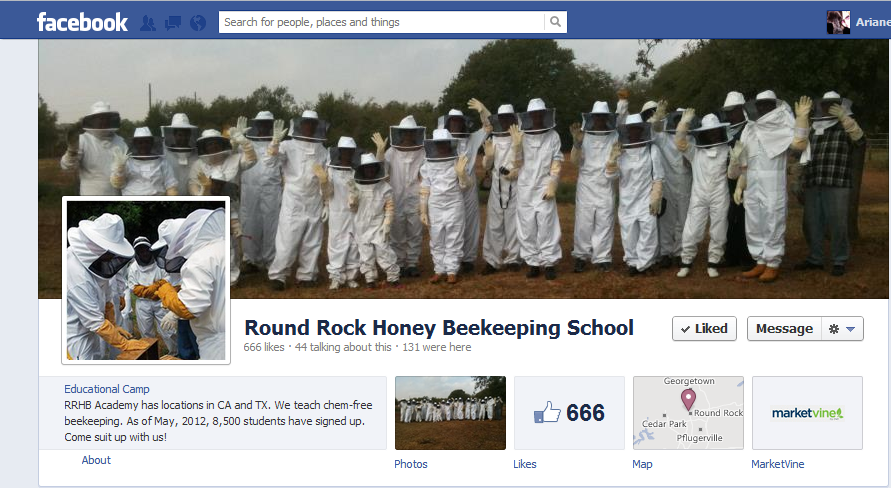this is your brain on bees
 Wednesday, July 18, 2012 at 09:40AM
Wednesday, July 18, 2012 at 09:40AM Everything I read this morning seems to overlap the last thing I read, somehow magically picking up a thread that was in the first piece and carrying it through the second, and then from the second into the third. Like a funny little echo effect, this thematic refrain sets the tone for the day, becomes a lens through which I go looking for the next bit of the pattern to emerge.
First thing I read this morning? Naturally, a piece about bee brain plasticity, posted to Facebook by the Round Rock Honey Beekeeping Academy, for whom I begin assistant-teaching this weekend (yay!).
Turning Back the Clock on Aging relates new findings that bees who change their social role -- i.e., trade in foraging, an essentially solo late-life activity, for in-hive, more social tasks like caring for young bees, feeding them, cleaning up after them -- reverse the aging of their brains. The change in activity, from solo to social, physically changes their brains. This has implications, possibly, for the study of aging in humans and for the prevention of Alzheimer's, relying on a probable link between later life isolation and dementia. This is the quote that made me read the article aloud to Joe across the breakfast table:
...as recent studies are beginning to reveal, even more striking than the honeybee societal structure are its neurobiological underpinnings, which are strangely human. Or, perhaps, human neurobiology is disquietingly insect-like.
Oooooooh, so interesting: are we disquietingly insect-like?
Maybe the secret to staying youthful is having lots of friends, staying connected, staying engaged? This would certainly explain my parents' perpetual youth. Although naturally, there is also the family legend that we are descended on my mother's side from Ponce de Leon, the Spanish explorer who discovered Florida in his quest for the Fountain of Youth. In the legend, he found the Fountain. We are the proof.
At any rate, the brains of bees who revert to younger more social activities actually change, slowing and reversing the effects of time. Amazing.
The next article to catch my eye this morning, also courtesy of Facebook, was a HuffPo piece, Too Much, Too Little Sleep Linked to Alzheimer's Risk. Apparently, seven hours of uninterrupted sleep is the key -- any more, any less, and our risk for age-related cognitive decline increases.
Which means that, in order to stay youthful, keep our brains functioning well as we age, then not only should we remain social like the bees who change their brains, but we should also maintain a habit of regular sleep, 7 hours, every night, with no changes in pattern as we cross the thresholds of decades.
Honestly, who could argue with this recipe?
Stay connected + sleep regularly = live well.
I feel like this is another thing to be grateful to bees for this morning. If I weren't obsessed with them, I wouldn't be a fan of Round Rock (and soon-to-be instructor, yay!) and I wouldn't have read the first piece. And if not for that article being in my head, I probably wouldn't have noticed the HuffPo piece or been half-as-interested, fresh from the bee brain plasticity read.
Got it, bees. Taking your tip and making sure I do it right, living longer bee-style, cozy and well-rested in my colony. ;>
 Yes, I'll be assistant-teaching for them on 7/21. And yes, I posted this only because of the 666.
Yes, I'll be assistant-teaching for them on 7/21. And yes, I posted this only because of the 666.
 aging,
aging,  bees,
bees,  round rock honey,
round rock honey,  sleep
sleep 
Reader Comments